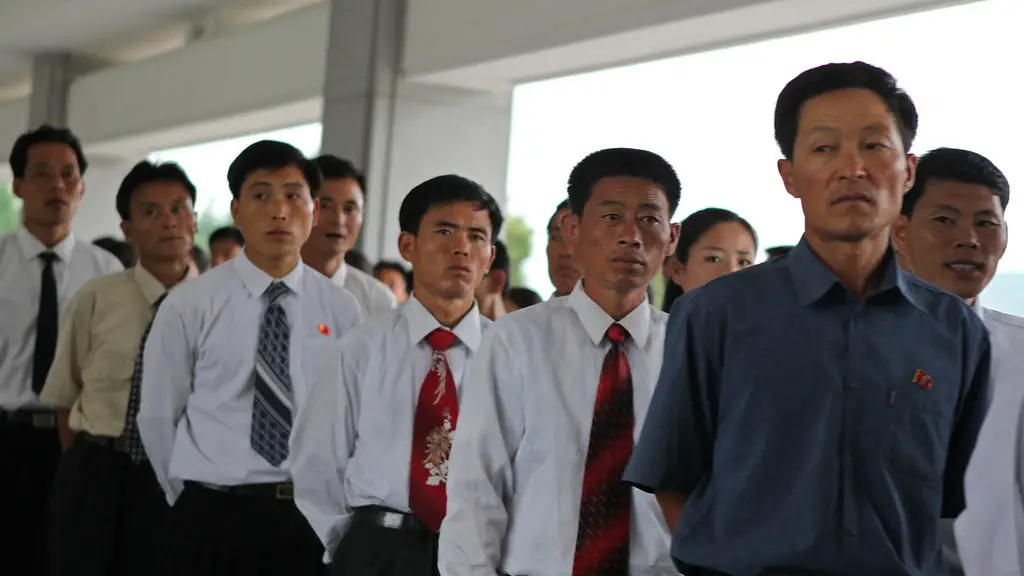North Korea – The Hermit Kingdom
North Korea, officially called the Democratic People’s Republic of Korea (DPRK), is a country located in East Asia. It is a hermit kingdom: its borders are officially closed to the rest of the world and its people are kept in virtual isolation from the rest of the world. Most North Koreans know little about life outside of the country and its leader Kim Jong-un, who holds absolute power over the people of North Korea.
The DPRK poses a significant threat to its neighbors and the rest of the world, especially in the realm of nuclear weapons proliferation. North Korea has pursued a policy of nuclear weapons development, testing, and expansion since the 1990s. This culminated in the 2017 joint Statement of Principles, in which the DPRK agreed to the complete denuclearization of the Korean peninsula in exchange for economic, political and security guarantees from the world community.
Since then, tensions between the US, the DPRK and the rest of the world have grown exponentially. US President Trump has engaged in a high stakes nuclear diplomacy with North Korea. In 2018, North Korea participated in the historic meeting between Trump and North Korea’s leader, Kim Jong-un. This was the first time a sitting US President had ever met with a North Korean leader.
Escalation Of Nuclear Power
Although North Korea has yet to use its nuclear weapons, the country has a long history of aggressive military exercises. The North Korean regime has publicly demonstrated its progress in the field of nuclear weapons capabilities by conducting 6 nuclear tests since 2006. All of these tests have been conducted in defiance of UN sanctions, and have further strained the fragile relationship between North Korea and the US and its allies.
In addition, the country has made significant advancements in the development of ballistic missiles.North Korea currently maintains an arsenal of at least 130 Scud-type missiles capable of reaching targets across East Asia, including Japan and South Korea. The DPRK is also believed to have at least 8 medium-range ballistic missiles, capable of reaching US military bases in the region.
These weapons of mass destruction have led to growing fears among world leaders. US officials have expressed concern that North Korea could launch a devastating surprise attack on its neighbors or even the US mainland. In response, President Trump has adopted a policy of ‘maximum pressure’ on North Korea, imposing crippling economic sanctions on the country while engaging in diplomatic negotiations with Kim Jong-un.
Growing Political Tensions
The diplomatic efforts between the US and North Korea have yielded some progress but progress towards meaningful denuclearization has stalled. In the meantime, political tensions between the two countries have grown in recent years, with North Korea escalating its military provocations and the US responding with additional economic sanctions.
Additionally, the relationship between North and South Korea has been fragile and strained for decades. The two countries remain technically at war, and have fought several dramatic military engagements over the decades. Many fear that a conventional military conflict between the two could quickly escalate into a nuclear exchange that would be catastrophic for the entire Korean peninsula.
Changing US Foreign Policy
President Trump’s ‘maximum pressure’ policy has resulted in increased US economic sanctions and diplomatic isolation of North Korea. This has led to a dramatic downturn in North Korea’s economy, exacerbating its already acute food and fuel shortages. Many fear that these shortages could lead to mass starvation or trigger political turmoil, further destabilizing the region.
Furthermore, the US has also signaled its willingness to use military force in the event of provocations from North Korea. This has led to growing fears that any future provocations by the DPRK could lead to a disastrous armed conflict with potentially catastrophic consequences.
Implications Of North Korea’s Actions
The implications of North Korea’s actions are far-reaching and the threat posed by the DPRK cannot be overstated. North Korea has become a major source of instability and conflict in East Asia and the world, and its apparent reluctance to relinquish its nuclear weapons and missile programs has created a climate of insecurity and fear across the region.
North Korea’s efforts to develop, test, and expand its nuclear arsenal has been a cause of great concern for the entire world. This, combined with its long history of threatening and aggressive behavior, have made the Hermit Kingdom one of the most feared and dangerous regimes in the world.
What Can Be Done?
The US and other world powers have thus far been unable to reach a lasting diplomatic solution to the North Korean crisis. The Trump Administration has stated that it is committed to achieving denuclearization of the Korean peninsula, but the DPRK has yet to agree to any meaningful steps towards denuclearization.
In the meantime, experts recommend multilateral diplomatic solutions in order to de-escalate tensions and reduce the risk of conflict. International organizations like the United Nations and the International Atomic Energy Agency (IAEA) should play a leading role in providing incentives and pathways for North Korea to achieve denuclearization and work towards greater security and stability in the region.
The Humanitarian Crisis
The North Korean nuclear issue has overshadowed the growing humanitarian crisis within the DPRK. Reports from inside the country indicate that millions of people are malnourished and do not have access to basic medical care. The country’s dismal economic situation has only been exacerbated by harsh economic sanctions imposed by the US and other countries.
The international community must also address the humanitarian crisis within the country in order to alleviate the suffering of the North Korean people. Organizations like the United Nations and the International Red Cross should be granted unfettered access to the country in order to assess the extent of the humanitarian crisis and provide assistance to those in need.
Preventing Unnecessary Conflict
Although the prospect of a conflict with North Korea cannot be completely ruled out, the US and the rest of the world must focus on finding lasting diplomatic solutions that will avert the need for military action. This must be done in coordination with the United Nations, China and other regional partners in order to de-escalate tensions and ensure the stability of the Korean peninsula.
Finally, the international community must recommit to the Joint Statement of Principles, in which the DPRK agreed to denuclearize in exchange for economic, political and security guarantees from the world community. This agreement may offer a breakthrough in the deadlock between the US and North Korea, and could pave the way for a lasting peace in the region.


